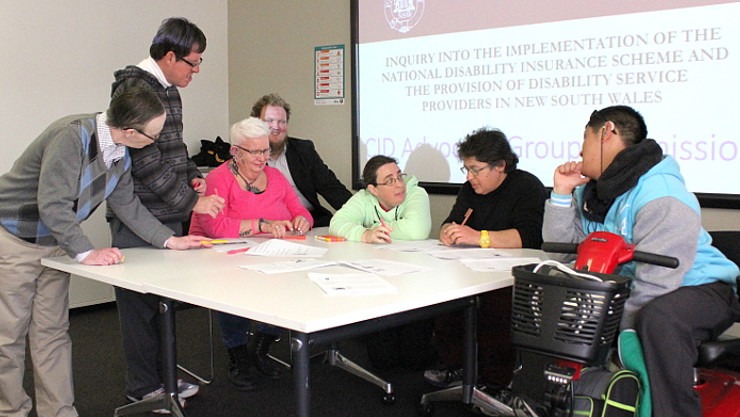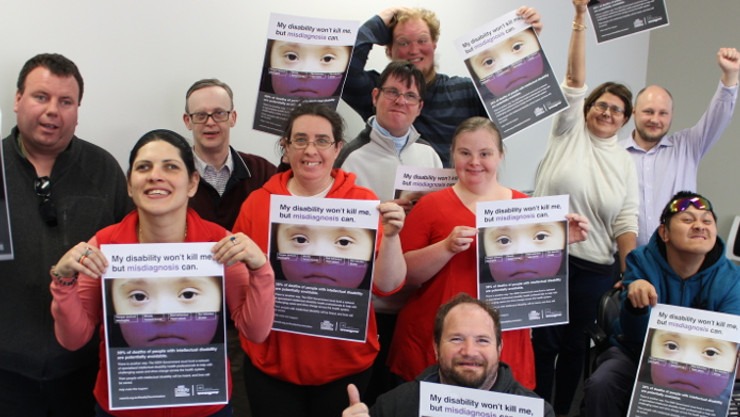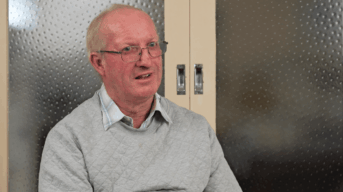
Disability advocacy group tells MPs how to make the NDIS better
The Advocacy Group at Council for Intellectual Disability (CID) has made an Easy Read submission to a NSW Parliamentary inquiry into the NDIS. We talked to Steven and Jack about the group’s recommendations on how to improve the NDIS, and why their submission is so important.
Why is it important for people with disability to be involved in an inquiry about the NDIS?
Steven: It is important to get people with disabilities, like our Advocacy Group, involved in the process to look at the issues that are important to us. It’s good to look at what you like about the NDIS and what you don’t like about the NDIS so that the MPs can hear what it is like from people on the ground.
I don’t think MPs have much idea of what it is like for us every day other than what is in the media, so I hope that they listen and take on what we say in our submission.
How did you put the submission together?
Steven: We had two meetings to talk about it. People in the group brought ideas to the table and to say, ok, listen, let’s talk about each of the issues we are going through with the NDIS and put them into the submission. We went through all of them and put them down on paper. CID then helped us put it into Easy Read.
What issues were put into the submission?
Steven: One of the big issues that a lot of people talked about was all of the paperwork needed for the NDIS. Piles and piles of paperwork. Way too much paperwork and assessments. A lot of people find it too overwhelming and not in Easy Read so many people give up and miss out.
Jack: A lot of people found the funding to be confusing. They don’t know how much funding they have left.
They need to make it clearer what we can do and what goals [we can have]. Don’t take forever and a day to get things done. We have more important things to do than sit around and wait for months. Do they think people with disability’s lives should be about sitting around waiting?
Why is Easy Read important?
Steven: The submission is very important for the public to see what Easy Read is like. It will help the public see how to put something into Easy Read and make the issues easy to understand.
People with intellectual disability can feel really isolated so it is good to have an Easy Read version so they can understand. They are people of Australia, why should they be excluded from Parliament?
I think a lot of politicians are scared to face a disability person who is hurting. We are not listened to. It is about time politicians hear from us.
Jack: The MPs need easy read because they might look at it and think ‘what is this?’ and read it.
What do you hope MPs will remember about your Easy Read Submission?
Jack: I hope that we get results. I hope the MPs work on it [the NDIS] to make it better and read our recommendations to make it better.
About our submissions
Parts of the NDIS have been difficult for people with disability to navigate. The CID Advocacy Group spent a few months putting together an Easy Read submission to tell MPs how the NDIS can be improved.
Read the Advocacy Group’s Easy Read submission.
We have also made a non-Easy Read submission to support what the Advocacy Group says and add some other things that CID staff and members think also need fixing.
Our advocacy group
CID’s Advocacy Group is made up of members with intellectual disability. It meets every month to talk about the big issues. Members of the group who worked on the submission include Shannon, Steven, Charlene, Anthony, Tara, Jack, Fiona, Quang, Judith, Roxana and Michael. The group formed because our members were sick of lack of action by MPs on issues important to their lives.
The Advocacy Group has been at the forefront of all of CID’s recent successful campaigns such as Deadly Disability Discrimination and Don’t Silence Us. They’ve met with Senators, local MPs and even lobbied the Prime Minister.

Get involved
Ensuring people with intellectual disability are at the forefront and leading campaigns not only builds their skills in self-advocacy and campaigning, but also ensures advocacy and campaign work is truly grassroots and ‘nothing about us without us’.
If you’d like to get involved or would like to set up your own advocacy or campaign group, email our advocacy team at advocacy@nswnswcid.wpengine.com



 1800 424 065
1800 424 065 














